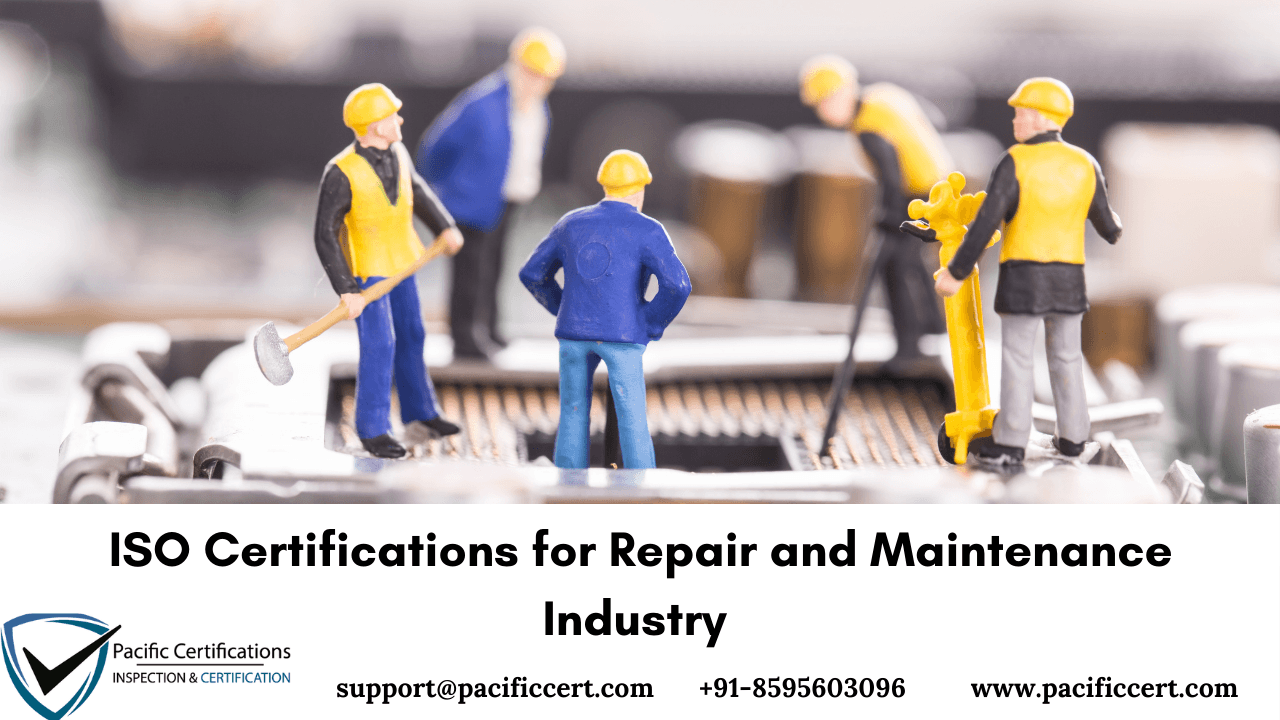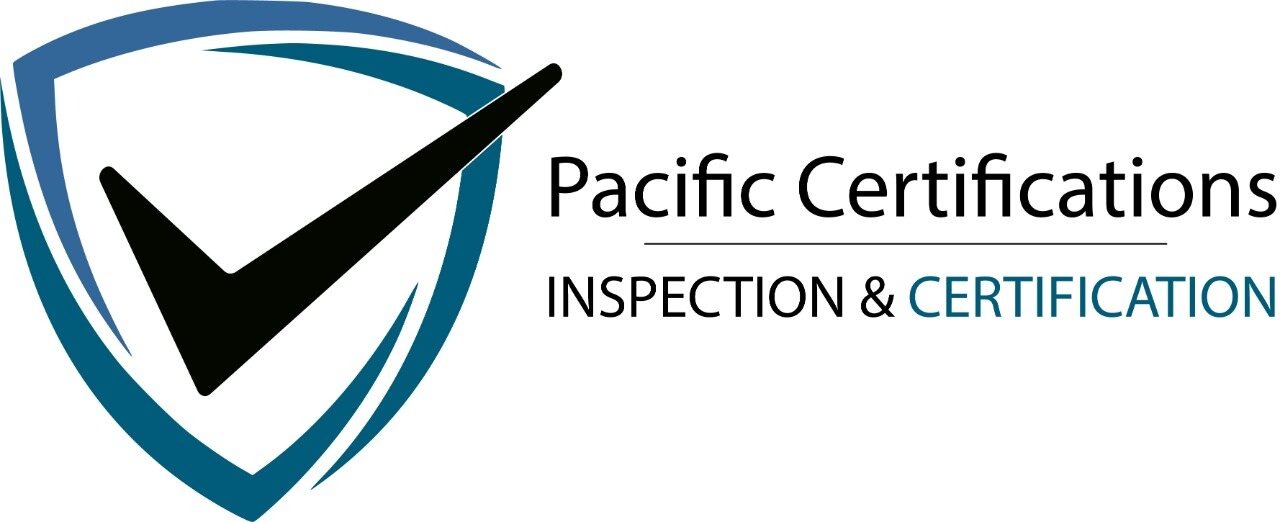ISO Certifications for Repair and Maintenance Industry Requirements and Benefits

Introduction
The repair and maintenance industry covers a wide range of services, from automotive workshops and industrial machinery repair to electrical, HVAC, and facility maintenance. It is a critical sector that keeps infrastructure, equipment, and vehicles operational. The repair and maintenance services market is expected to exceed USD 1.5 trillion by 2030 according to recent market research, driven by industrial growth and consumer demand for extended product lifecycles.
This sector faces daily challenges, from workplace safety to and regulatory compliance. ISO certifications help companies in this industry establish clear systems for safety, quality, and environmental responsibility, while giving clients the confidence that their assets are in capable hands.
ISO 9001 certification for example, ensures that businesses implement effective quality management systems, leading to consistent & reliable repair and maintenance services. For companies focused on sustainability, ISO 14001 is crucial. ISO 45001 is essential for ensuring health and safety in repair and maintenance operations, particularly where workers are exposed to physical hazards.
Repair and maintenance businesses rely on trust, safety, and consistent service delivery—ISO certifications provide the structure to achieve these goals.
Quick Summary
ISO certifications help repair and maintenance businesses ensure safe, reliable, and compliant services. Core standards include ISO 9001 (quality), ISO 45001 (safety), and ISO 14001 (environment). Certification reduces risks, builds trust with customers, and supports sustainable long-term operations.
Applicable ISO Standards for Repair and Maintenance Industry
The ISO standards applicable to the repair and maintenance industry can vary depending on the specific nature of the services offered and the organization's objectives. Below are some ISO standards that are particularly relevant to the repair and maintenance sector:
ISO 9001:2015 - Quality Management System (QMS):
It can be applied to repair and maintenance businesses to enhance the quality of their services, improve processes, and improve customer satisfaction.
ISO 55001 - Asset Management:
Asset management is crucial in the repair and maintenance industry, and ISO 55001 provides a framework for effective asset management.
ISO 45001:2018 - Occupational Health and Safety Management System (OH&S):
Safety is a top priority in the repair and maintenance sector. ISO 45001 assists organizations in creating a comprehensive occupational health and safety management system to protect employees and contractors.
ISO 14001:2015 - Environmental Management System (EMS):
Repair and maintenance businesses that want to minimize their environmental impact and ensure compliance with environmental regulations can adopt ISO 14001 to establish an effective environmental management system.
ISO 41001 - Facility Management:
ISO 41001 provides guidelines for managing facilities efficiently, which can be valuable for organizations involved in facility maintenance.
ISO 26000 - Social Responsibility:
ISO 26000 offers guidance on social responsibility, including ethical behavior. Repair and maintenance companies can use this standard to demonstrate their commitment to responsible business practices.
ISO 55002
Asset Management Guidelines: ISO 55002 complements ISO 55001 by providing additional guidance on implementing an effective asset management system. It can help organizations optimize their asset management practices.
ISO 19650
Building Information Modeling (BIM): For organizations involved in building maintenance and renovation, ISO 19650 sets out principles and requirements for the effective use of building information modeling to manage assets and projects more efficiently.
ISO 31000 - Risk Management:
Risk management is critical in the repair and maintenance industry. ISO 31000 provides a framework for identifying, assessing, and mitigating risks associated with maintenance activities.
ISO 10002 - Customer Satisfaction:
To improve customer satisfaction and handle complaints effectively, repair and maintenance companies can implement ISO 10002, which provides guidelines for complaint management.
Other Applicable standards are:
ISO 10002 - Customer Satisfaction
ISO 17025 - Testing and Calibration Laboratories
ISO 45003 - Psychological Health and Safety at Work
ISO 22301 - Business Continuity Management
It's essential for organizations in the repair and maintenance industry to carefully determine which ISO standards are most relevant to their specific business activities.
What are the requirements of ISO Certifications for Repair and Maintenance Industry ?
Below are some general steps and requirements typically involved in obtaining ISO certification:
Define the scope of services: equipment, vehicles, facilities, or industrial systems.
Set policies for quality, environmental care, occupational safety, and data security.
Carry out risk assessments for accidents, equipment failures, and environmental hazards.
Document processes for inspection, repair, preventive maintenance, and testing.
Train staff in safe work practices, customer communication, and compliance requirements.
Keep records of service logs, equipment checks, audits, and corrective actions.
Monitor KPIs such as service turnaround time, defect rates, safety incidents, and client feedback.
Run internal audits and reviews to maintain and improve systems.
Tip: Start with ISO 9001 for quality and ISO 45001 for safety, then add sector-specific standards like ISO 17025 for workshops and labs or ISO 14001 for environmental control.
If you are looking for ISO Certification for your company, contact us today at [email protected]
What are the benefits of ISO Certifications for Repair and Maintenance Industry?
ISO certifications offer several significant benefits to organizations in the repair and maintenance industry. Here are some of the key benefits of ISO certifications for the repair and maintenance sector:
Certification helps companies deliver reliable services, reduce risks, and improve customer trust.
Clear processes that improve service consistency and reduce errors.
Safer workplaces with reduced accident risks for technicians.
Stronger compliance with safety, quality, and environmental regulations.
More efficient use of resources, lowering costs over time.
Documented systems that make audits, inspections, and tenders easier to manage.
Greater confidence for customers, regulators, and business partners.
Better ability to handle emergencies and service disruptions.
A culture of accountability and continuous improvement.
The repair and maintenance sector is evolving quickly with new technologies, stricter safety rules, and sustainability pressures. Predictive maintenance using IoT and AI tools is becoming common in industrial facilities, allowing problems to be identified before breakdowns occur. This shift increases the importance of quality and risk management frameworks like ISO 9001 and ISO 31000.
Environmental responsibility is also growing in importance. Regulations now demand proper disposal of oils, chemicals, and waste generated during maintenance, making ISO 14001 highly relevant. At the same time, worker safety remains a priority, especially in industries like automotive repair and heavy machinery, where ISO 45001 directly applies. Customers are also more likely to choose service providers who can show evidence of certification, as it reflects accountability and professionalism.
How Pacific Certifications can help?
Pacific Certifications provides independent auditing and certification services for the repair and maintenance industry. We work with businesses of all sizes to align their operations with international standards and build confidence with clients and regulators.
With Pacific Certifications, you can:
Obtain certification for ISO 9001, ISO 45001, ISO 14001, ISO 17025, ISO 22301, and others.
Improve service quality and workplace safety.
Build credibility with clients, suppliers, and authorities.
Adopt structured systems that support long-term growth and reliability.
In summary, ISO certifications can have a profound impact on the repair and maintenance industry by improving service quality, customer trust & efficiency.
If you need more support with ISO Certification for your business in Repair and Maintenance Industry, please contact us at +91-8595603096 or [email protected].
Author: Ashish
Read more: ISO Certifications for Aerospace industry Requirements and Benefits
